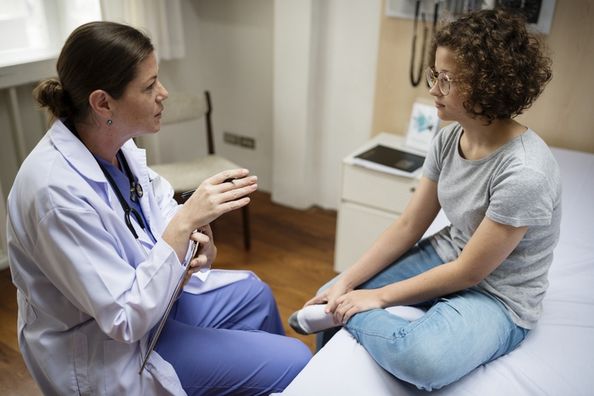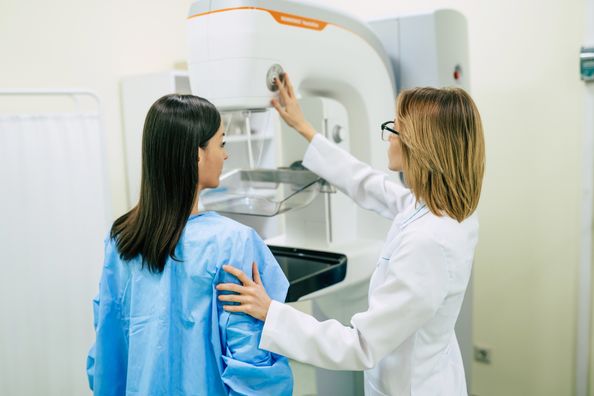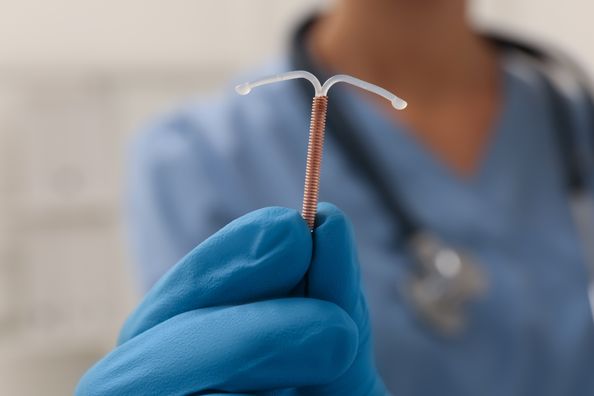This screening allows your physician to observe cellular changes and abnormalities on your cervix and can also identify your likelihood of developing cervical cancer. The early detection of abnormal cells plays a vital role in slowing or stopping the development of cancer growth. Between 74 and 83 percent of cervical cancer cases are directly related to a viral infection known as the Human Papilloma Virus (HPV). HPV typically has no symptoms, making Pap smears an essential step in catching abnormalities early.
What should I expect?
During your Pap smear, your physician will insert a tool called a speculum into your vagina to examine your cervix. Using a brush or spatula, a sample of cervical cells will be collected and sent for testing.
If possible, it is best to avoid scheduling a Pap smear during your period as it could affect test results. If you are unable to schedule your screening around your period, you should still attend your appointment and receive your Pap smear.
When should I get a Pap smear?
Many factors play a role in Pap smear requirements, including:
- Age
- Medical history
- HIV status
- Whether you have a weakened immune system or were exposed to diethylstilbestrol (DES) before birth
Although your individual health and pap history will be taken into consideration when determining how often you should have a screening, the general guidelines according to The American College of Obstetricians and Gynecologists are:
Women ages 20 years and younger: No screening required
Women ages 21 – 29 years: Pap test every 3 years
Women ages 30 – 64 years: Pap test every 3 years, HPV test every 5 years or co-testing (Pap and HPV tests) every 3 – 5 years*
Women ages 65 years and older: No screening required if adequately screened prior to age 65
Women who have had a hysterectomy and cervix removal: Screening may be required
*At the discretion of your physician
Testing frequency will vary based on past abnormal test results. Most women over the age of 65 will no longer need a Pap smear, however, this depends on individual risk factors. Pap smears may still be necessary if you’ve had a hysterectomy or a total removal of the uterus and cervix.
When can I expect my results?
You can expect your Pap smear results one to three weeks after your screening. Many women have abnormal Pap smear results and oftentimes, abnormal cells return to normal on their own. A repeat screening or further testing may be required. In some cases, a biopsy or colposcopy may be done to measure the severity of your cervical changes.
Types of abnormalities:
There are many common cell abnormalities that are present in positive test results, including:
- Atypical Squamous Cells of Undetermined Significance (ASCUS)
These cells are mildly abnormal but do not meet the criteria for precancerous cells. In the case that human papillomavirus (HPV) is present, your physician may recommend further testing.
- Squamous Intraepithelial Lesion
These lesions can be indicators of precancerous cellular changes and frequently require additional testing. A colposcopy is usually recommended, depending on age and pap results, with or without biopsy, to get a magnified view of the cervix, vulva and vagina. Lesions can be low-grade with low cancer risk or high grade with high cancerous risk. They could also be atypical glandular cells, which are abnormal cells in the endocervix requiring extra testing or squamous cell cancer, also known as adenocarcinoma. Depending on the cell type, such lesions may signal the likelihood of cancer.
Cervical cancer screenings play a vital role in the early detection of abnormal cells. Discover more tips on women’s health, or schedule an appointment with your obstetrician or gynecologist.
Health Topics:








